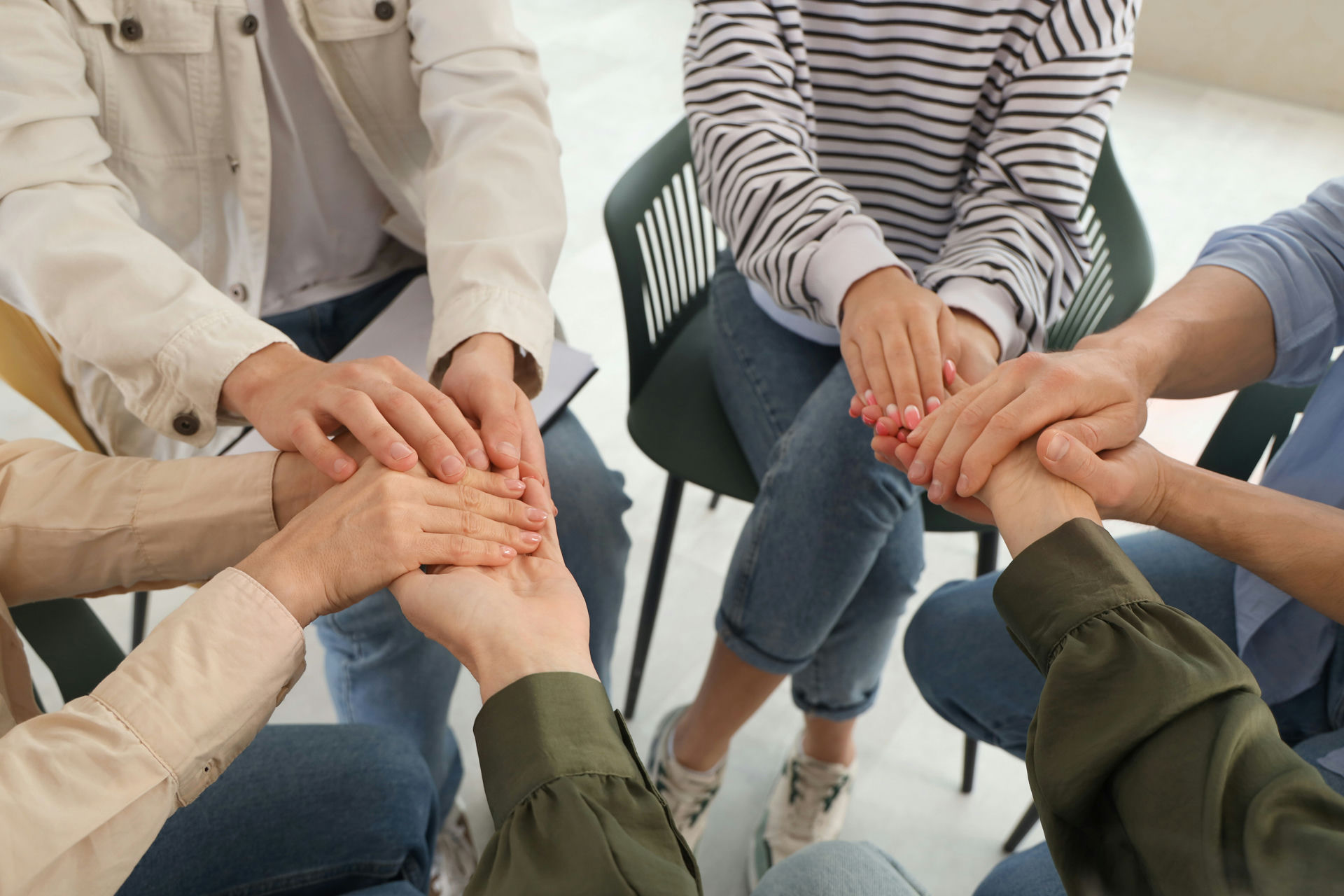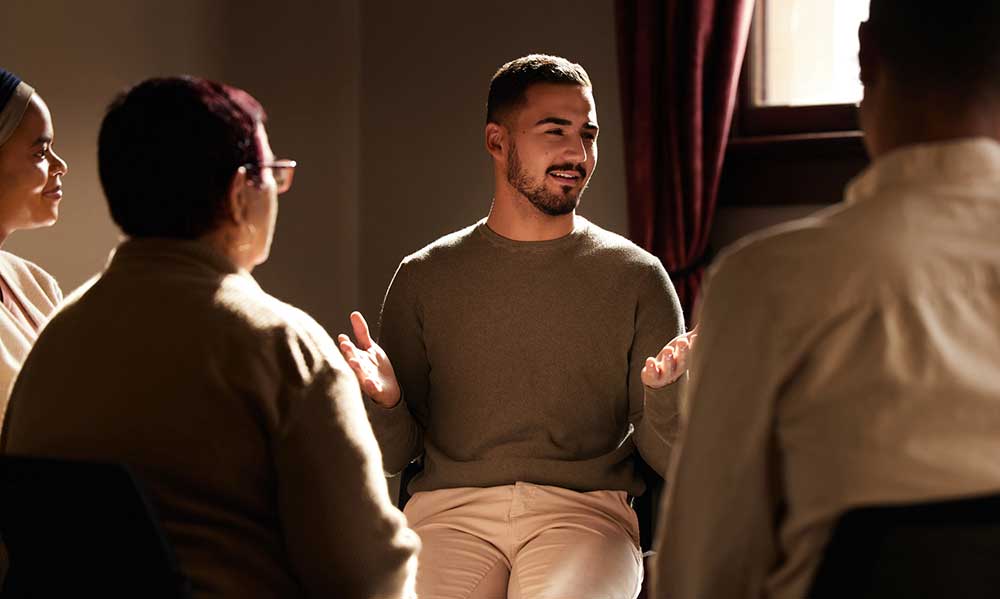Supporting a Loved One in Recovery: Nurturing Their Journey to Wellness
By Carmen Cook, LMFT | August 28th, 2025

Supporting someone through recovery is a journey that requires patience, compassion, and resilience. Addiction does not exist in isolation. It ripples through families, friendships, and entire communities. When a loved one takes the brave step toward recovery, they are choosing to rebuild their life. They need a strong support system to walk alongside them.
At Mana Recovery Center in Maui, we understand that recovery is not only about the individual — it’s about creating a supportive network that uplifts and empowers them every step of the way. By understanding the challenges of recovery, learning effective ways to offer support, and protecting your own well-being, you can play an essential role in your loved one’s path to lasting wellness.
Understanding the Challenges of Recovery
What Your Loved One is Going Through
Addiction recovery is both a physical and emotional transformation. Physically, your loved one may be dealing with the lingering effects of withdrawal, changes in sleep patterns, fluctuating energy levels, or cravings that can feel overwhelming. These symptoms can make even daily routines difficult to manage (at first).
Emotionally, recovery often stirs up feelings that were suppressed during active addiction. Shame, guilt, regret, or sadness may surface as your loved one begins processing their past. At the same time, anxiety about the future can cause stress and self-doubt. These emotional hurdles are normal. But they can also leave your loved one feeling vulnerable and exposed.
Recognizing that recovery is not just about sobriety but also rebuilding confidence, mental health, and physical stability can help you better understand the challenges your loved one is navigating.
The Importance of Patience and Empathy
It’s natural to want your loved one to heal quickly. But recovery doesn’t follow a straight path. There may be setbacks, and progress can be slow. By approaching the journey with patience and empathy, you create a safe environment that encourages healing instead of pressure.
Empathy means more than just understanding. It means putting yourself in your loved one’s shoes, recognizing that their struggles are real, and reassuring them that they are not defined by their past. Small gestures of compassion, like offering to listen without judgment or celebrating progress, can help rebuild trust and self-esteem.
Avoiding Enabling Behaviors
While support is crucial, enabling can unintentionally undermine someone’s recovery. Enabling can often looks like covering up mistakes, providing money that could be misused, or excusing harmful actions in an attempt to “help.” These actions can shield your loved one from the consequences that might otherwise motivate them to stay committed to recovery.
Instead, focus on supporting behaviors that align with their bigger goals. Offer encouragement when they attend therapy, celebrate their progress, and help them find healthy outlets for stress. Remember, being supportive does not mean saying “yes” to everything. It means creating an environment that reinforces their recovery.
Effective Ways to Offer Support
Educating Yourself About Addiction and Recovery
Addiction is a chronic disease, not a choice or a moral weakness. Educating yourself about how addiction affects the brain, how relapse occurs, and what treatment involves can help you offer informed support.
By understanding that recovery requires ongoing effort and structure, you can better manage expectations and avoid frustration. Many treatment centers, including Mana Recovery, also provide educational resources for families so you can feel more confident in your role.
Active Listening and Validating Their Feelings
Listening may seem simple, but it’s one of the most powerful forms of support. Your loved one may not always need advice. They may just need to feel heard.
Active listening involves paying full attention, avoiding interruptions, and reflecting back what you hear to show understanding. Statements such as, “I can see how difficult that must be for you” or “I hear how much effort you’re putting into this” validate their feelings and reinforce trust.
Encouraging Their Participation in Support Groups and Therapy
Therapy and peer support are cornerstones of recovery. Whether it’s attending 12-step meetings, participating in cognitive-behavioral therapy, or joining group therapy sessions, these resources provide accountability and coping strategies.
You can support your loved one by helping them research local groups, offering transportation, or simply encouraging their attendance. At Mana Recovery, therapies like cognitive behavioral therapy (CBT), DBT, family therapy, and group sessions are tailored to help individuals build skills that last a lifetime.
Celebrating Milestones and Progress
Recovery is full of victories big and small. From the first week without substances to completing a treatment program, each milestone deserves recognition. Celebrating these moments not only boosts your loved one’s morale but also reminds them that progress is worth acknowledging.
These celebrations don’t need to be elaborate. A handwritten note, a small outing, or even just verbal acknowledgment can serve as powerful reminders of how far they’ve come.
Setting Healthy Boundaries
Protecting Your Own Well-Being While Offering Support
Supporting a loved one can be emotionally draining, which is why it’s crucial to care for your own mental health. Boundaries allow you to maintain your well-being without withdrawing your support.
By prioritizing self-care through rest, exercise, or personal time, you’ll be better equipped to support your loved one consistently without burning out.
Learning to Say “No” to Unreasonable Requests
Addiction recovery often involves difficult conversations, including saying no to requests that could harm your loved one’s progress. While it may feel uncomfortable, setting limits around financial support, excuses for missed responsibilities, or unhealthy habits helps keep recovery on track.
Saying “no” isn’t about being harsh. It’s about protecting both your loved one and yourself.
Avoiding Blame and Judgment
It’s easy to slip into frustration or resentment, especially when progress feels slow. But blaming or shaming only creates distance.
Instead, shift your perspective from fault to healing. Emphasize encouragement and accountability without judgment. This balance builds trust and helps your loved one feel safe enough to remain open and honest about their struggles.

Practical Ways to Help
Assisting with Practical Needs
Sometimes, small acts of service make the biggest difference. Offering to drive your loved one to therapy or meetings, helping with job searches, or even preparing meals can remove stressors that might otherwise trigger setbacks.
Practical support shows your loved one that they are not alone, and that recovery is manageable when approached step by step.
Creating a Supportive and Substance-Free Home Environment
A safe and supportive environment is critical to long-term recovery. Removing substances, avoiding events where alcohol or drugs are present, and establishing routines that encourage healthy living create stability for your loved one.
A substance-free home sends a clear message: this is a space where recovery is respected and supported.
Engaging in Healthy Activities Together
Spending quality time together helps strengthen bonds and promotes healthy coping mechanisms. Activities like hiking, cooking, meditation, or yoga not only reduce stress but can also create positive shared experiences.
At Mana Recovery, the Recover Strong program emphasizes the connection between physical activity, brain health, and emotional well-being. Incorporating exercise and wellness activities into your relationship can help reinforce progress in recovery.
Seeking Support for Yourself
The Importance of Al-Anon or Other Support Groups for Families
Family members often feel overwhelmed by the ups and downs of recovery. Support groups such as Al-Anon or Nar-Anon provide a safe space where you can share experiences, learn coping strategies, and feel less isolated.
Hearing from others who have been in your shoes helps normalize your experiences and provides practical guidance.
Therapy and Counseling for Navigating the Challenges
Just as your loved one can benefit from therapy, you can too. Counseling offers a private space to process emotions, manage stress, and explore ways to support your loved one without losing yourself in the process.
Individual therapy can also help you heal from the impact of addiction and build healthier patterns in your relationship.
Remembering That You Are Not Alone
Many families are walking the same path. Recovery is not just an individual journey but a family transformation. Reminding yourself that you’re not alone can bring comfort during difficult times and strengthen your resilience.

When to Seek Mana Recovery for Help
There are times when professional support is the best step forward. If your loved one is struggling to stay sober, facing repeated relapses, or showing signs that they need structured care, Mana Recovery can help.
In Maui’s serene setting, Mana Recovery offers:
- Partial Hospitalization Program (PHP): Comprehensive day treatment with intensive structure and therapy.
- Intensive Outpatient Program (IOP): Flexible support for those who need therapy and accountability without 24-hour care.
- Standard Outpatient Program (OP): Ongoing support for those transitioning into independent living.
Our therapies include individual counseling, group therapy, family therapy, CBT, DBT, and our unique Recover Strong program that integrates neuroscience and exercise for mind-body healing.
At Mana Recovery, we also work closely with families, helping them understand addiction, set healthy boundaries, and rebuild relationships. Contact us today to learn more!

